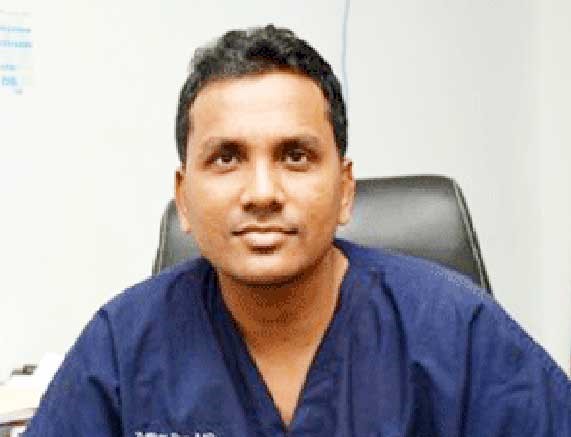COVID-19 – “We still need to find the balance and not open up as if things are normal” – Emergency Medicine Specialist warns
While there are sections of the world still struggling to cope with the impact of COVID-19, here in Guyana things, from all indications, have largely returned to normalcy. This has even translated to government outreaches and other activities where persons gather in their numbers, sometimes not even adhering to the COVID-19 guidelines.
Taking note of this state of affairs, Emergency Medicine Specialist, Dr. Zulfikar Bux, shared his belief that “defying recommendations and being rebellious seems to be the trend these days.”
Worrying, he said, is the fact that the virus thrives in reckless environments which have catered nicely to a second wave of the disease in some parts of the world.
But standing up to this disease, and by extension helping to sustain mankind’s existence, could be as simple, Dr. Bux reminded, as wearing a face mask, distancing one’s self from others as much as possible. This means, he said, avoiding crowds at all cost, especially those in closed spaces where there is no free flow of air. Persons can also help to safeguard themselves by keeping clean and remaining home, only venturing out if it is necessary.
The number of COVID-19 cases is steadily increasing and can only be reined in, according to Dr. Bux, if unified action is taken. This, he noted, is especially important during this phase of the pandemic.
According to the medical expert, in parts of the world faced with a second wave of the disease, the spread is even worse than the first. In fact, he highlighted in his column of Sunday last in this newspaper that hospitals worldwide are overwhelmed, and countries are now being forced to lockdown and give their medical systems time to recover. Unfortunately, these lockdowns, he added, complicate things further, especially in vulnerable systems where many persons are placed on the breadline and this can lead to devastation of economies and lives.
In Guyana, he said, “we are keeping the ship afloat and I’m hopeful that our case numbers do not increase and overwhelm us. It didn’t have to be this way; evidence is clear that there are options, when practiced properly, that can avoid lockdowns and keep infections to a minimum.”
While the evidence is getting clearer that lockdowns can be avoided, Dr. Bux is of the view that “it doesn’t mean that we can go back to how we were before the pandemic.” Some, he said, have misinterpreted this and feel that they can socialize as per normal and let their guard down. But according to the Emergency Medicine Specialist, “We still need to find the balance and not open up as if things are normal. Activities that can be done from home should be encouraged and those that are not essential to economical sustainability should still be avoided. The more we gather the higher the odds of our cases rising.”
Surviving COVID-19, therefore, means embracing a plan, Dr. Bux said, that “includes us all doing our part to prevent a second wave. By now, we should all be aware of the risks and where they lie. Being responsible while doing our daily necessities will allow us to sustain our livelihood while avoiding the dangerous second wave.”
Since it has become common knowledge that the elderly and those with existing conditions such as Diabetes, Cardiovascular diseases, Cancer, etc., are at higher risk of dying or becoming hospitalized with the disease, Dr. Bux said that emphasis should be placed on protecting them. This, he said, should include ease of access to services for them so that they do not have to be out and about.
Many countries, he revealed too, are now starting to show evidence that early use of some medications, such as: Ivermectin, Hydroxychloroquine, Vitamins C and D and Zinc, and Azithromycin/Doxycycline, decrease deaths and hospitalizations.
In fact, he disclosed that countries such as India, Australia, Egypt, Bangladesh, Greece, etc. have started one or more of the treatments and have lower death rates than others that are not using them.
“Some countries are distributing vitamins, especially Vitamin D, to their high risks populations so that their immune systems can be prepared in the event that they are infected. The young that live with high risk relatives, need to be even more responsible to ensure they do not take home the infection to them,” Dr. Bux related.
Also, a recent study from Egypt, he said, showed that there were no deaths and only one hospitalization in 100 patients who had COVID-19 and used Ivermectin early. “I remain baffled why these treatments are not being used widely especially given how cheap and safe they are and how long they have been in existence,” said Dr. Bux.
Gatherings like this should be avoided to help reduce the spread of COVID-19.























